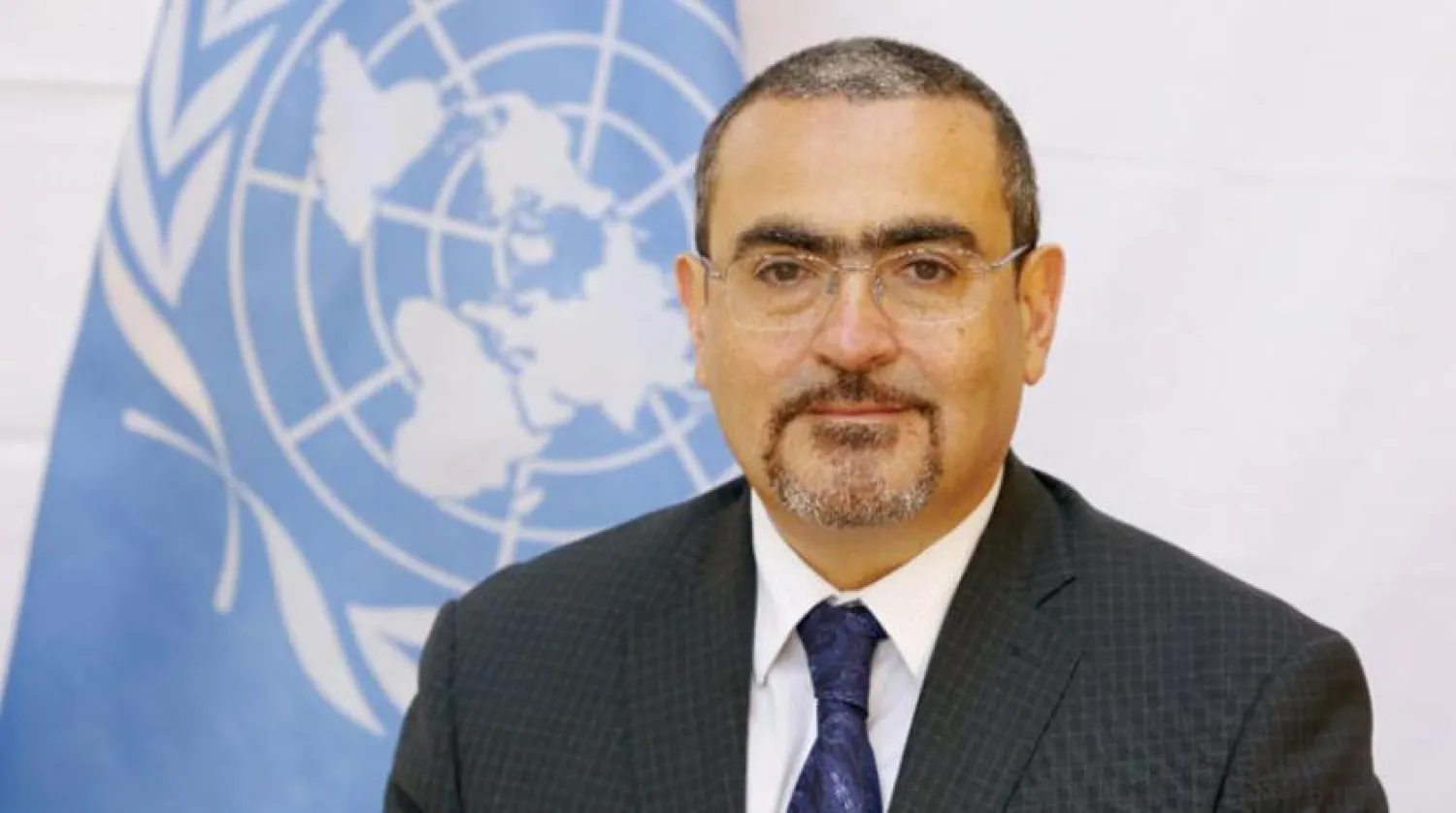United Nations Humanitarian assistance organizations are predicting a severe food shortage in Afghanistan if timely and adequate resources are not made available to people of Afghanistan on immediate basis, said a senior official of United Nations in an interview with Asharq Al-Awsat in Islamabad.
The worst case scenario includes large scale migration of Afghan people towards neighboring countries including Pakistan and Central Asia. A UN assessment says that half of the Afghan population is facing a serious malnutrition crisis.
“We are working to avert a major crisis. But everything is possible if resources are not made available,” said Ramiz Alakbarov, UN Humanitarian Coordinator in Afghanistan.
He added that the Taliban are fully cooperating with UN efforts to avert a crisis and the fact that there was no fighting going on in the country is facilitating the efforts. “For the first time we have access to all of the Afghan territory,” he said.
Afghanistan local food and agriculture production is sufficient to feed only half of its population and the rest of the population is facing malnutrition and food shortages that could lead to starvation or mass exodus towards neighboring countries.
“Agriculture production in Afghanistan has suffered a lot because of the drought. Half of the Afghan population is experiencing serious malnutrition,” Alakbarov said.
“The humanitarian situation in Afghanistan has been and will remain complex. In the last four years, Afghanistan has been struck by a very serious drought. And this humanitarian crisis has been overlaid with conflict, especially in the first half of the year,” he added.
Afghanistan is a very poor country and there are problems of structural nature, which obstruct the growth of the agriculture sector in the war torn country.
“These varieties of factors contributed to a crisis where a large proportion of the Afghan population doesn’t have access to basic needs such as food and sanitation items. Cold winter has started. There were shortages of everything. We will be reaching 17 million people with our assistance by the end of the year. So far, we have reached 8 million people with food assistance and 1 and half million people with medical assistance.”
“We are grateful to our donors who provided us with essential funds. People continue to suffer from malnutrition. We have a large number of people in Afghanistan who wake up in the morning not knowing where their food will come from,” he remarked.
There is a growing fear in the neighboring countries that they would have to entertain another wave of humanitarian refugees as winters arrives in the region.
“We are trying to avoid a situation where there will be a large-scale exodus towards the neighboring countries with every possible means. That is why our teams are on the ground. More than 20 UN agencies are working on the ground and a large number of NGOs and international organizations are making efforts to provide food and essential items to Afghan people. We don’t want such a situation,” stressed Alakbarov.
UN officials said that if resources are not made available to those providing humanitarian assistance, the worst case scenario of large scale exodus out of Afghanistan is possible.
“What the situation will look like in a month time will depend on the level of humanitarian aid that will be coming in,” he explained.
“We asked for $600 million and we received that money. And by the beginning of the year, we have been asking for $1.5 billion and we have it. It will largely depend on continued supplies and one thing that needs to be assured is that Kabul airport remains open. Roads between Pakistan and Afghanistan should remain open. It will also depend on the snowfalls and the roads remaining open in the mountains,” he said.
“If we have the resources, we are determined to avert the exodus of people out of Afghanistan and if resources are not available to us, then everything is possible,” he said.
Alakbarov said that there is an absolutely essential need for Kabul Airport to remain open for essential supplies to reach the population.
“Kabul Airport should remain open at all costs. We need air travel for continued supplies of medicine. Most of the food comes through trucks. We are not only talking about Kabul airport. We are talking about every airport in Afghanistan. They should remain open,” he urged. “We need to have a well organized traffic control in place at all airports to ensure continued supply of humanitarian assistance for Afghan people. This is still not in place.”
“Taliban have been very supportive of humanitarian actions. One of the features of our humanitarian assistance operations now is that we have access to the entire territory of Afghanistan. This was not there before” he said. “The fact that there is no fighting in Afghanistan is a facilitating factor in our operations.”










